Every year, more than thirty million foreigners visit Turkey, and while the country is generally safe, food poisoning remains one of the most common illnesses affecting travellers abroad. Hotels, restaurants, tour operators and cruise ships owe a strict duty of care to ensure the food and drink they provide are safe. When hygiene rules are not followed and illness occurs, these businesses can be held legally liable. Recent Turkish case law confirms that courts base their decisions on scientific evidence, medical findings and expert reports – not on nationality or commercial considerations. Liability is imposed when contamination or harmful substances are proven, and courts may even consider foreign medical records or foreign judgments. If you became ill due to negligence on the part of a hotel or restaurant in Turkey, you may be entitled to compensation. Bıçak advises international clients on food-poisoning claims and handles both litigation and out-of-court settlements. We assist with gathering medical evidence, coordinating expert evaluations and establishing the chain of responsibility. If you are unsure whether you have a valid claim, contact Bıçak for an initial consultation. We will review your case and guide you through your legal options with no obligation.
Holiday Food Poisoning Claims in Turkey
Anyone serving food to the public, anywhere in the world, has a legal and professional responsibility to follow proper health and safety procedures. Hotels, restaurants, cruise ships, shops and tour operators must ensure that food hygiene rules and international best practices are consistently applied. If you become ill with food poisoning because these standards were not met, you may be entitled to claim compensation from the venue responsible. If you were travelling as part of a package holiday, you may also be able to bring a claim against the tour operator, who has a legal duty to ensure that the accommodation and facilities provided to holidaymakers are safe.
Holiday Food Poisoning Claims
Undercooked meals, poorly reheated dishes, contaminated buffet food and food left uncovered are among the most common causes of holiday food poisoning. The term “food poisoning” refers to a range of infections that share similar symptoms such as diarrhoea, vomiting and severe stomach discomfort. These illnesses not only disrupt or ruin a holiday but may also lead to long-term health complications. Holiday food poisoning cases often involve conditions such as gastroenteritis, norovirus, campylobacter, salmonella, E-coli, shigella, listeria, giardia and cryptosporidium, as well as longer-term outcomes like irritable bowel syndrome and haemolytic uraemic syndrome. Our lawyers regularly work with clients affected by these conditions and provide support throughout the claims process.
Preventing the Spread of Food Poisoning
Food poisoning can spread rapidly, and hotels and restaurants are required to act immediately when a guest becomes ill in order to reduce the risk of further infection. This includes reporting and recording incidents, limiting the movement of individuals who are sick, informing other guests if there is a potential risk, and carrying out additional cleaning, sanitisation and isolation of contaminated areas. When these measures are not implemented properly and an illness results, the responsible establishment may be held liable.
Symptoms of Food Poisoning
Diarrhoea and vomiting are the most common symptoms, but many people also experience stomach cramps, abdominal pain, blood in the stool, loss of appetite, high temperature or fever, general aches and pains, and a sense of weakness and dehydration.
Rise in Salmonella Cases Among Travellers
The UK Health Security Agency (UKHSA) has reported a significant increase in gastrointestinal infections in travellers returning from Turkey, with more than 200 confirmed Salmonella cases since early 2023. Although many cases resolve with rest and hydration, Salmonella can be dangerous for young children, elderly individuals and people with weakened immune systems.
How We Manage Every Aspect for You
Pursuing a claim for food poisoning in Turkey can feel overwhelming, particularly due to unfamiliar laws, procedures and potential language barriers. Many people abandon legitimate claims for these reasons. When you instruct us, we handle every aspect of your claim – from gathering evidence to communicating with hotels, insurers and local authorities – ensuring you do not need to worry about Turkish regulations or translation. We also work with a trusted international network of partner law firms that can attend hearings or assist with local procedures whenever necessary. You will remain in direct contact only with our team at Bıçak, ensuring consistency and ease of communication. Food poisoning outbreaks often affect large groups of guests. We are experienced in coordinating group claims and negotiating with tour operators. Early settlement offers are common, but our track record shows that clients who proceed with our representation typically secure higher compensation than initial offers.
Claim Process
If you believe you have suffered food poisoning abroad, contact us for a free initial consultation. After reviewing your case, we will advise whether you can pursue a claim and how our legal services can assist you. If you choose to proceed, your case will typically follow these four stages:
Investigation: We determine who is legally responsible and arrange a medical examination to assess the full extent of your illness.
Rehabilitation: If you require ongoing medical care, we help ensure you receive appropriate treatment and professional support.
Compensation Assessment: We calculate your potential compensation based on:
-
severity of illness
-
medical expenses
-
lost income
-
long-term health impact
-
cost of care
-
pain and suffering
-
loss of enjoyment of holiday
We then submit this assessment to the responsible party, who may accept or dispute liability.
Settlement: Most claims settle amicably. If the responsible party disputes liability, your case may proceed to court. If that occurs, we will support you at every step.
How Much Compensation Can You Expect?
Compensation varies depending on the nature and severity of your illness, its impact on daily life, and the financial losses you have suffered. Typical considerations include:
-
Severity and duration of your condition
-
Psychological distress
-
Lost earnings (current and future)
-
Medical costs in Turkey and your home country
-
Ongoing care and support needs
-
Mobility aids or home modifications
-
Cost of the holiday and loss of enjoyment
-
Pain and suffering
-
Any additional financial losses linked to your illness
Can You Claim if You Have Fully Recovered?
Yes. Even if you recover completely, you may still claim compensation for:
-
Medical expenses
-
Lost wages
-
Holiday disruption
-
Pain and suffering experienced at the time
Recovery does not eliminate liability for the suffering and financial loss caused by a hotel or restaurant’s negligence.
Possible Long-Term Effects
While most people recover fully, some experience long-term health issues, including:
-
Irritable Bowel Syndrome (IBS)
-
Haemolytic Uraemic Syndrome (HUS)
-
Chronic Fatigue Syndrome
-
Organ impairment
Long-term symptoms often require ongoing medical support, which we will help you access as part of the claims process. Sadly, the most severe cases can lead to fatalities, and compensation claims may be pursued on behalf of affected families.
Turkish court decisions also provide important guidance on how liability for unsafe food or drink is assessed. Recent judgments offer valuable insight into the legal principles applied in these cases.
How Turkish Courts Evaluate Food and Drink Poisoning Cases
An examination of recent Court of Cassation decisions provides valuable insight into how Turkish courts approach cases involving unsafe food, contaminated meals and harmful beverages. Although each case arises in a different factual context, they collectively demonstrate the courts’ expectations, evidentiary standards and approach to public-health risks. These decisions also clarify an important point for foreign tourists: Turkish courts are not biased in favour of local businesses. Their assessment depends entirely on evidence, causation and compliance with food-safety obligations.
In the first decision (Yargıtay 10th Criminal Chamber, 2023/1661 E., 2023/2753 K.), a catering company serving meals to students was convicted after numerous children became ill. Laboratory analysis confirmed the presence of harmful bacteria in the food, and medical reports documented the resulting illnesses. The Court held that anyone who produces or serves food is legally required to ensure that it is safe, unspoiled and fit for consumption. When scientific analysis shows contamination, courts do not hesitate to establish responsibility. This case illustrates that, where evidence is strong, the courts recognise both the seriousness of foodborne illness and the duty of care owed to consumers – including tourists.
In the second decision (Yargıtay 10th Criminal Chamber, 2022/16589 E., 2023/3033 K.), the issue involved alcohol bottles alleged to be unsafe. The Court stressed that liability cannot be imposed without laboratory findings, expert assessments and a scientifically supported link between the product and the alleged harm. Because the evidence in that case did not establish a reliable connection between the seized items and the defendants’ conduct, the Court upheld acquittal. The decision demonstrates that criminal courts apply a stringent standard of proof – “beyond reasonable doubt” – and will not convict unless the case is supported by clear and objective evidence. For civil compensation claims, however, the standard is lower, which makes it easier for tourists to succeed when medical documentation and factual evidence are provided.
The third judgment (Yargıtay 1st Criminal Chamber, 2022/2425 E., 2022/6909 K.) concerned the sale of illicit alcohol that resulted in a consumer’s death from methanol poisoning. The Court overturned the lower court’s acquittal and held that the seller’s conduct amounted to “causing death by conscious negligence.” Expert reports confirmed that the alcohol was harmful, and the victim’s spouse consistently stated that it had been purchased from the defendant’s shop shortly before symptoms began. The Court accepted this as a sufficient causal link and emphasised that a food or drink provider who creates an obvious and serious risk is responsible for the consequences when that risk materialises. This decision is particularly relevant for tourists harmed by unsafe food or drink, as it confirms that Turkish courts recognise strong causation arguments and are prepared to impose serious consequences on negligent businesses.
The fourth judgment (Yargıtay 17. Hukuk Dairesi, 2015/18407 E., 2018/9420 K.) concerns a dispute between a hotel and its insurance company following a food poisoning incident involving a British tourist. After staying at the hotel, the tourist fell ill with salmonella and later brought a claim against a travel company in the United Kingdom. The UK court awarded compensation, and the travel company deducted this amount from the hotel’s account. The hotel, in turn, sought reimbursement from its own insurer under a liability insurance policy that expressly covered food poisoning cases, provided that food-safety regulations had been followed. The insurer rejected the claim, arguing that the incident was outside the scope of coverage, and the lower court accepted that view. The Court of Cassation overturned the decision. It held that the insurance policy contained a specific clause covering food poisoning, subject only to compliance with food-safety rules. Because this clause functioned as an exclusion, the burden of proof rested with the insurer. The hotel submitted hygiene inspection reports for the relevant period and showed that no other guests had experienced similar symptoms. The insurer failed to prove any breach of the applicable food regulations and therefore could not rely on the exclusion to avoid liability.
The Court also examined whether the illness originated at the hotel or elsewhere. Expert medical analysis indicated that the incubation period for salmonella is typically 8–24 hours but can extend up to 72 hours. The child’s parents stated that symptoms began while the family was still at the hotel, and the UK judgment also concluded that the most probable source of infection was food consumed during the hotel stay. Although it was theoretically possible that the illness developed during travel, the overall evidence strongly suggested that the hotel was the likely source. On this basis, the Court found that the lower court should not have dismissed the claim without a full factual and legal assessment.
This judgment illustrates that Turkish courts take a balanced and evidence-driven approach in food poisoning cases. When credible medical records, consistent witness statements and supporting documentation indicate that an illness likely originated from food served at a hotel, both the hotel and its insurer may be held responsible. It also shows that foreign medical records and foreign court decisions are considered relevant evidence in Turkish proceedings, providing additional reassurance to international tourists seeking compensation.
The fifth relevant judgment concerns a fatal methanol poisoning incident involving alcohol purchased from a retail shop (1st Criminal Chamber, E. 2022/6911, K. 2023/941). In this case, the victim bought two bottles of rakı from a small shop and became seriously ill shortly afterwards, eventually dying from methanol intoxication. Multiple expert reports from the Forensic Medicine Institute confirmed that the clinical presentation and laboratory findings were entirely consistent with methanol poisoning.
A crucial element in this case was the evidentiary chain:
-
Witness testimony confirmed the purchase of alcohol from the defendant’s shop,
-
The price was significantly lower than market value, raising suspicion,
-
Chemical analysis of the residual liquid in the bottles showed the presence of methanol at levels capable of causing death,
-
No evidence showed that the victim consumed alcohol from other sources.
Although the defendant denied wrongdoing, the Court held that the causal link between the contaminated alcohol and the victim’s death was sufficiently established. However, the Court also emphasised that there was no proof that the defendant intentionally produced or knowingly sold methanol-containing alcohol. Therefore, it overturned the acquittal and ruled that the defendant should be convicted of “bilinçli taksirle öldürme” (conscious negligence manslaughter), not intentional killing.
This judgment reinforces a consistent legal approach: Turkish criminal courts rely heavily on scientific evidence, price anomalies, witness statements, and causation analysis in contamination-related deaths. It also demonstrates that when vendors fail to ensure product safety—even without proven intent—they may face serious criminal liability.
The sixth judgment further illustrates how Turkish courts deal with deaths caused by contaminated alcoholic beverages. In this case (1st Criminal Chamber, E. 2023/4208, K. 2023/6146), the victim purchased a bottle of “İstanblue” vodka from a small shop and consumed it over two nights. Shortly thereafter, he became seriously ill, was hospitalised, and ultimately died. An autopsy by the Forensic Medicine Institute confirmed that the death resulted from methanol intoxication.
During the investigation:
-
Witnesses confirmed that the victim purchased the vodka directly from the defendant’s shop.
-
Laboratory analysis by the İstanbul Gıda Kontrol Laboratuvarı showed that the bottles contained methanol-contaminated alcohol.
-
The shop’s licence had been revoked a year earlier, yet it continued operating illegally.
-
The defendant admitted obtaining alcohol from an unknown supplier and selling it despite safety risks.
The First Instance Court convicted the defendant of “olası kastla öldürme” (probable intent homicide), but the Court of Cassation found no evidence that the defendant knew the product contained lethal levels of methanol or intended harm. However, it held that the defendant should have foreseen the fatal risk, given that he knowingly sold unlicensed and potentially dangerous alcohol. Therefore, the Court ruled that the correct qualification was “bilinçli taksirle öldürme” (conscious negligence manslaughter) and overturned the conviction so that a sentence could be imposed under this standard.
This judgment emphasizes that liability arises from foreseeability and reckless disregard for consumer safety, even when intent cannot be proven. It further confirms that Turkish courts rely on forensic evidence, witness statements, and regulatory compliance failures to impose criminal responsibility in contamination-related deaths.
Taken together, these six judgments show that Turkish courts evaluate food-poisoning and unsafe-drink cases strictly on the basis of evidence – not nationality, commercial considerations, or the identity of the parties. When contamination, adulteration or the presence of harmful substances is scientifically proven, courts take a firm approach and do not hesitate to establish liability, including in fatal methanol-poisoning cases. Where the evidence is inconclusive, criminal courts continue to apply the “benefit of doubt” principle; however, the case law also demonstrates that in civil and insurance-related disputes, the evidentiary threshold is significantly lower, and compensation may still be awarded when medical findings, expert reports, witness statements and documentation point to the hotel, restaurant or seller as the probable source of the illness.
For foreign tourists, the key takeaway is that Turkish law provides real and effective remedies for illnesses caused by unsafe food or drink. Medical documentation, prompt reporting of symptoms, consistent witness accounts and laboratory analysis substantially increase the likelihood of success. Importantly, Turkish courts are willing to consider foreign medical reports and even foreign court decisions when evaluating the origin of contamination and the chain of responsibility—ensuring that international travellers are not disadvantaged.
These six decisions collectively show that food safety and consumer protection are taken very seriously in Turkey. With the right medical evidence, supporting documentation and experienced legal representation, guests can effectively pursue compensation claims and hold hotels, restaurants, bars, and their insurers accountable when they fail to meet their legal obligations to serve safe food and beverages.
Helping you Receive the Compensation You Deserve
At Bıçak Law Firm, our goal is to secure the compensation you deserve with minimal stress. Our lawyers communicate directly with service providers, insurers and tour operators on your behalf and keep you informed at every stage. When you contact us, we begin with an initial assessment. If you are eligible and agree to proceed, we will connect you with a solicitor experienced in holiday food poisoning claims in Turkey.
To strengthen your claim, it helps if you can provide:
-
A written account of where and what you ate
-
Receipts, bank records or booking confirmations
-
Information about whether other guests were also ill
-
Medical records or a doctor’s report
Don’t worry if you cannot collect all of this information. Contact us and we will guide you through the process and help you move your claim forward.
 English
English Türkçe
Türkçe Français
Français Deutsch
Deutsch

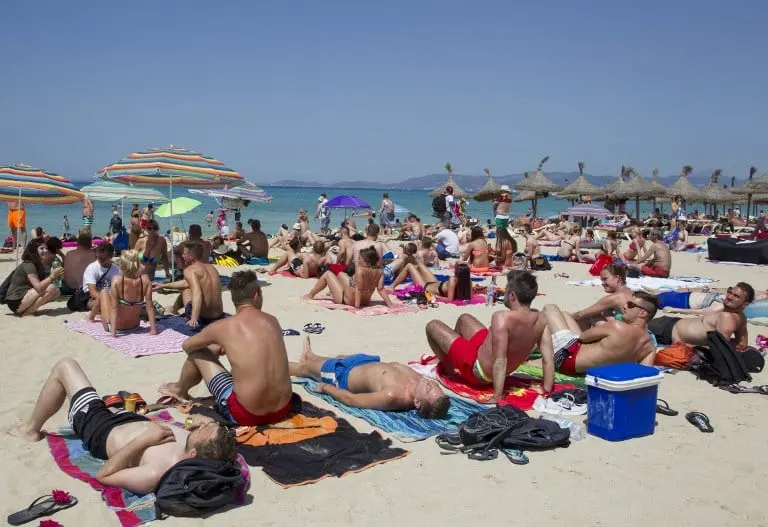


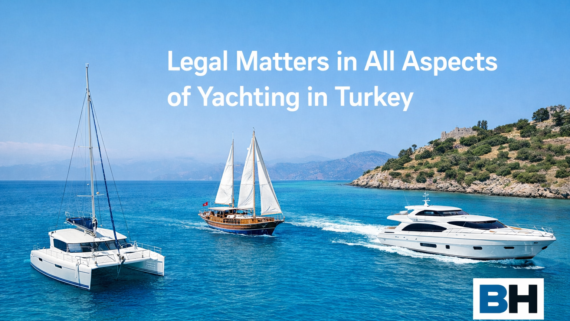
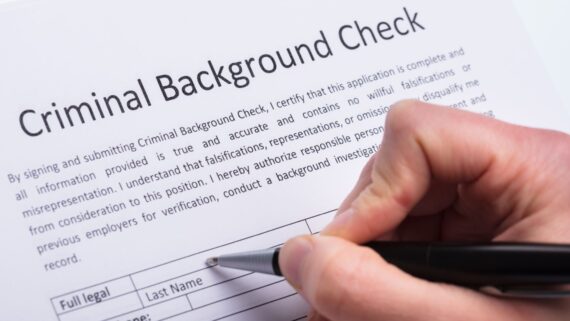
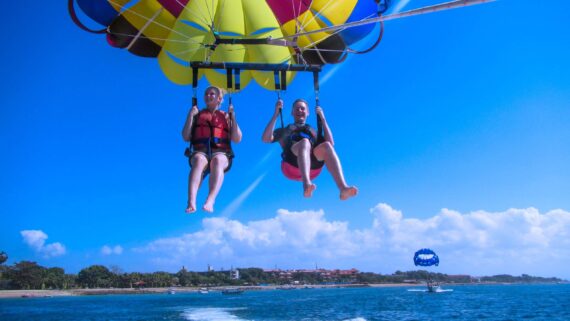
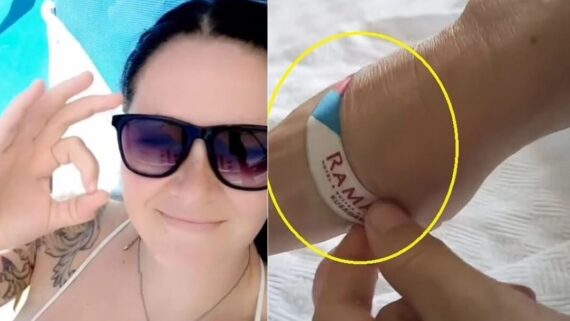


Comments
No comments yet.